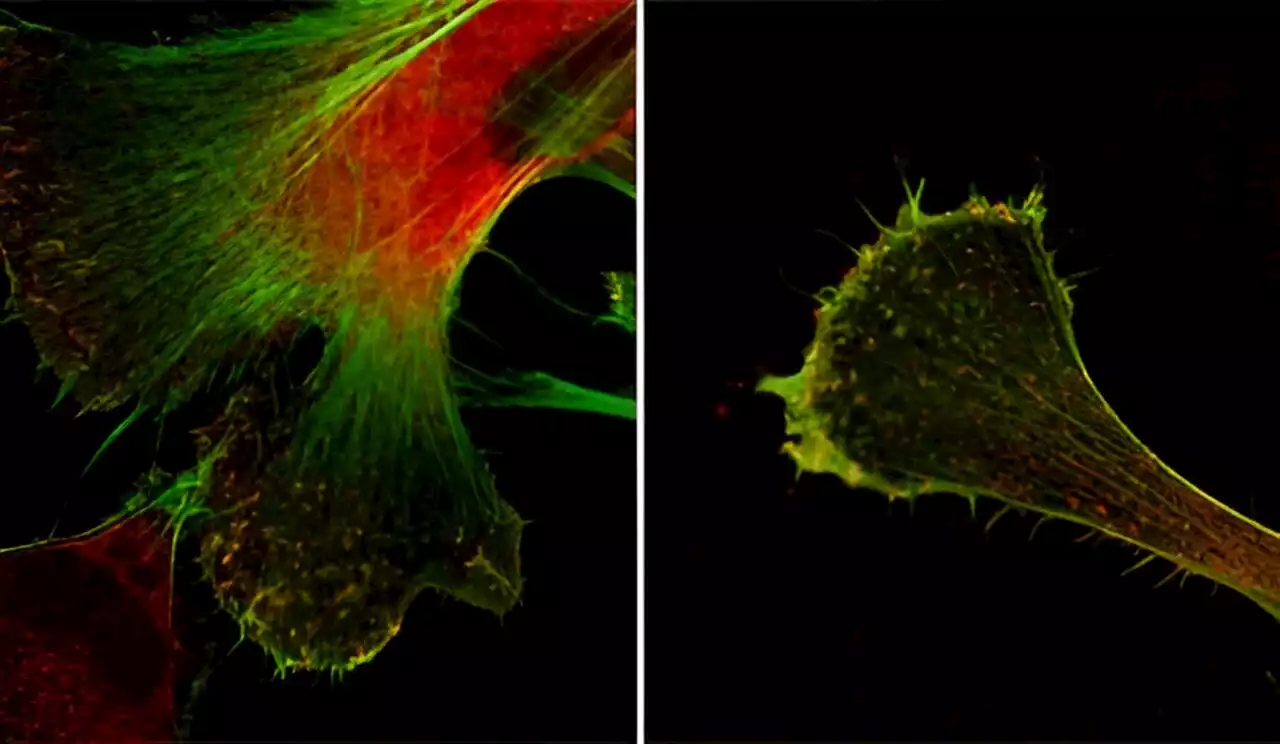University at Buffalo researchers have discovered how an active form of a gene present in 75% of the human population works to protect the brain against neurodegeneration.
"Actin acts like beams in a house. It provides support for the cells in the cytoskeleton, which is the frame of the cell," says Kinga Szigeti, MD, Ph.D., corresponding author, professor of neurology in the Jacobs School of Medicine and Biomedical Sciences and a physician with UBMD Neurology."For the 75% of people who have the active version of CHRFAM7A, it may allow neurons to build stronger connections and to better adapt to changes in the brain environment.
Three-quarters of the population has the active version while a quarter of the population does not. And it's only present in humans, not animals, which, Szigeti explains, is why animal models of Alzheimer's disease and otherCHRFAM7A has also been implicated in many neuropsychiatric disorders, such as schizophrenia and bipolar disease.
"It's a very interesting conundrum," she continues."If you don't have CHRFAM7A or you have less of it, you are at higher risk of developing Alzheimer's disease because the brain is less structurally solid. But if you do have the active form of the gene, the drugs that we have now may not work as well because the Alpha 7 receptor for acetylcholine—which is what most drugs target—is altered.
United Kingdom Latest News, United Kingdom Headlines
Similar News:You can also read news stories similar to this one that we have collected from other news sources.
 Researchers conduct comprehensive psychological evaluation of university studentsThe prevalence rates of stress, depression, anxiety, insomnia, mania, suicidal ideation, loneliness, and psychotic experiences among university-going students in the UK.
Researchers conduct comprehensive psychological evaluation of university studentsThe prevalence rates of stress, depression, anxiety, insomnia, mania, suicidal ideation, loneliness, and psychotic experiences among university-going students in the UK.
Read more »
 Scottish university develops 'sustainable and healthy' alternative to palm oilRESEARCHERS at a Scottish university have developed a healthy and environmentally friendly alternative to palm oil.
Scottish university develops 'sustainable and healthy' alternative to palm oilRESEARCHERS at a Scottish university have developed a healthy and environmentally friendly alternative to palm oil.
Read more »
 How Sean McDermott put 'juice' back in Bills with a dominant defensive gameThe Buffalo Bills are right back on track thanks to a banner day from the defense.
How Sean McDermott put 'juice' back in Bills with a dominant defensive gameThe Buffalo Bills are right back on track thanks to a banner day from the defense.
Read more »
 Scottish university strikes start again as new term beginsStaff at five universities are taking strike action in a long-running dispute over pay and conditions.
Scottish university strikes start again as new term beginsStaff at five universities are taking strike action in a long-running dispute over pay and conditions.
Read more »
 Researchers uncover 'circular logic' of RNAs in Parkinson's diseaseResearchers are gaining new insights into neurological diseases by studying circular RNAs (circRNAs) in brain cells. A new study by investigators from the Brigham and Women's Hospital identified over 11,000 distinct RNA circles that characterized brain cells implicated in Parkinson's disease and Alzheimer's disease. Their results are published in Nature Communications.
Researchers uncover 'circular logic' of RNAs in Parkinson's diseaseResearchers are gaining new insights into neurological diseases by studying circular RNAs (circRNAs) in brain cells. A new study by investigators from the Brigham and Women's Hospital identified over 11,000 distinct RNA circles that characterized brain cells implicated in Parkinson's disease and Alzheimer's disease. Their results are published in Nature Communications.
Read more »
